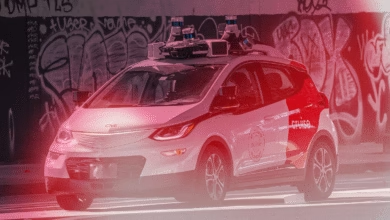Tesla Ordered to Pay $200M in Autopilot Crash Lawsuit

▼ Summary
– A federal jury found Tesla partially responsible for a fatal 2019 crash involving Autopilot, awarding $200 million in punitive damages and compensatory damages.
– The jury assigned two-thirds of the blame to the driver (who failed to brake) and one-third to Tesla, marking one of the first major legal losses for Tesla over driver-assistance tech.
– Plaintiffs’ attorneys argued Tesla misled the public by marketing Autopilot as safer than human driving despite its limitations, contributing to the crash that killed Naibel Benavides Leon and injured Dillon Angulo.
– Tesla plans to appeal, calling the verdict flawed and claiming no 2019 vehicle (including theirs) could have prevented the crash, while shifting blame to the driver.
– The verdict comes as Tesla faces scrutiny over Autopilot’s safety and rolls out its Full Self-Driving technology, with past NTSB investigations highlighting overconfidence in the system.
A federal jury in Miami has ruled that Tesla must pay $200 million in punitive damages following a wrongful death lawsuit tied to its Autopilot driver-assistance system. The 2019 crash, which killed a pedestrian and severely injured another individual, marks one of the first major legal setbacks for the electric vehicle maker regarding its autonomous driving claims.
The incident occurred when neither the Tesla driver nor the Autopilot system engaged the brakes in time, resulting in a collision at an intersection. The jury assigned two-thirds of the fault to the driver, who faced separate legal action, while holding Tesla responsible for the remaining third. The case centered on the tragic deaths of 20-year-old Naibel Benavides Leon and the life-altering injuries sustained by her partner, Dillon Angulo.
Plaintiffs’ attorneys argued that Tesla misled the public about Autopilot’s capabilities, marketing it as safer than human drivers despite knowing its limitations. “Tesla turned public roads into testing grounds for unproven technology,” said lead attorney Brett Schreiber, emphasizing that the company failed to restrict Autopilot’s use to highways as originally intended. The lawsuit also implicated CEO Elon Musk’s public statements, accusing him of exaggerating the system’s reliability to boost Tesla’s market value.
Tesla has vowed to appeal, calling the verdict “legally flawed” and insisting that no vehicle, Autopilot-equipped or otherwise, could have prevented the accident. The company maintains the crash resulted solely from driver error, dismissing the lawsuit as a baseless attack on its technology.
The ruling arrives amid heightened scrutiny of Tesla’s autonomous driving claims. Federal investigators previously criticized the company for ignoring safety recommendations after a fatal 2018 Autopilot-related crash. Musk himself acknowledged the risks of driver overconfidence in the system, yet Tesla continues expanding its Full Self-Driving (FSD) and Robotaxi initiatives, raising further questions about accountability.
As Tesla pushes forward with its vision for autonomous vehicles, this case underscores the legal and ethical challenges facing the industry. The outcome could set a precedent for future litigation involving advanced driver-assistance systems. Updates are expected as Tesla’s appeal progresses.
(Source: TechCrunch)


